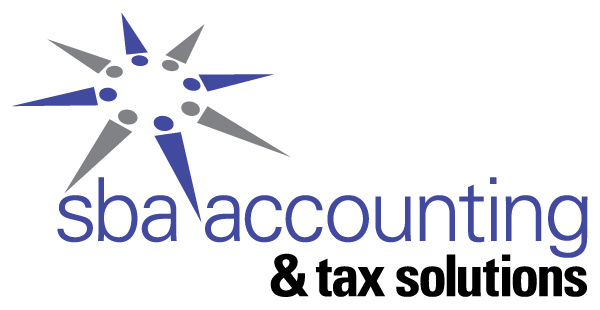The consequences of filing taxes late can vary depending on the circumstances. If you owe the IRS money, you may be subject to penalties and interest. The penalty amount will depend on how late you file and how much you owe. If the IRS owes you money, you may not be able to receive your refund until you file your return.
Here are several scenarios that could happen if you file your taxes late.
What Happens if You Don’t File Your Taxes on Time?
If you don’t file your taxes on time, the IRS may take several actions, including:
- Levy your wages. The IRS can garnish your wages up to 25% of your disposable income.
- Seize your assets. The IRS can seize your bank accounts, car, or even home.
- Accrue penalties and interest. The longer you wait to file your taxes, the more penalties and interest you will owe.
When You Owe the IRS Money
If you owe the IRS money, you will be required to pay interest on the amount you owe. The interest rate is currently 3% per month, compounded daily. This means that if you owe $1,000, you will owe an additional $30 in interest each month.
However, this can really become a problem, depending on how much money is owed and how much interest is in compounding.
What’s the Penalty for Paying Taxes Late?
The penalty for paying taxes late is currently 5% of the amount you owe, per month, up to a maximum of 25%. This means that if you owe $1,000 and file your return 60 days late, you will owe an additional $30 in penalties.
When the IRS Owes You Money
If the IRS owes you money, you will be required to file a tax return to claim your refund. The IRS will typically issue your refund within six weeks of receiving your return. However, if there are any problems with your return, the IRS may take longer to issue your refund.
What Happens if You Don’t Pay Your Taxes?
If you don’t pay your taxes, the IRS may take a number of actions, including all of the penalties listed above for late payment. However, the IRS may also begin legal proceedings if you are severely overdue with handling your tax debt.
They might file a lawsuit against you or issue a warrant for your arrest. The IRS is serious about collecting taxes and will take action to get what they are owed.
How Long Can You Go Without Filing Taxes?
The IRS has a statute of limitations for collecting taxes. So, they can only collect taxes for a certain number of years after the tax is due.
The statute of limitations for most taxes is ten years. However, there are some exceptions to this rule. For example, the statute of limitations for taxes that are not filed is six years.
How To Avoid an IRS Penalty for Late Filing
There are a few things you can do to avoid an IRS penalty for late filing, and SBA Accounting & Tax Solutions can help:
- Plan ahead. Most businesses pay quarterly taxes to lessen the annual burden.
- File your return on time. This is the best way to avoid any penalties.
- Get an extension. If you know you won’t be able to file your return on time, you can request an extension from the IRS.
- Pay your taxes on time. Even if you file your return late, you can still avoid penalties if you pay your taxes on time. To do this, you must pay the full amount of taxes you owe by the due date, even if you don’t file your return by the due date.
- Set up a payment plan. If you can’t pay your taxes in full by the due date, you can request a payment plan from the IRS. A payment plan will allow you to pay your taxes over time, but you will still be charged interest on the amount you owe.
Contact Our Fresno Tax and Accounting Professionals Today!
If you have any questions about the consequences of filing taxes late or need help, please contact our experienced accountants today. We can help you understand your options and ensure that you file your taxes correctly and on time. Call now to protect your future and your assets.
Written by: Cindy Leddicotte
Cindy Leddicotte has decades of experience in accounting and currently serves as the Principal of SBA Accounting & Tax Solutions. She works with clients to create processes that help them meet financial goals, hold themselves accountable, and grow their businesses.
The consequences of filing taxes late can vary depending on the circumstances. If you owe the IRS money, you may be subject to penalties and interest. The penalty amount will depend on how late you file and how much you owe. If the IRS owes you money, you may not be able to receive your refund until you file your return.
Here are several scenarios that could happen if you file your taxes late.
What Happens if You Don’t File Your Taxes on Time?
If you don’t file your taxes on time, the IRS may take several actions, including:
- Levy your wages. The IRS can garnish your wages up to 25% of your disposable income.
- Seize your assets. The IRS can seize your bank accounts, car, or even home.
- Accrue penalties and interest. The longer you wait to file your taxes, the more penalties and interest you will owe.
When You Owe the IRS Money
If you owe the IRS money, you will be required to pay interest on the amount you owe. The interest rate is currently 3% per month, compounded daily. This means that if you owe $1,000, you will owe an additional $30 in interest each month.
However, this can really become a problem, depending on how much money is owed and how much interest is in compounding.
What’s the Penalty for Paying Taxes Late?
The penalty for paying taxes late is currently 5% of the amount you owe, per month, up to a maximum of 25%. This means that if you owe $1,000 and file your return 60 days late, you will owe an additional $30 in penalties.
When the IRS Owes You Money
If the IRS owes you money, you will be required to file a tax return to claim your refund. The IRS will typically issue your refund within six weeks of receiving your return. However, if there are any problems with your return, the IRS may take longer to issue your refund.
What Happens if You Don’t Pay Your Taxes?
If you don’t pay your taxes, the IRS may take a number of actions, including all of the penalties listed above for late payment. However, the IRS may also begin legal proceedings if you are severely overdue with handling your tax debt.
They might file a lawsuit against you or issue a warrant for your arrest. The IRS is serious about collecting taxes and will take action to get what they are owed.
How Long Can You Go Without Filing Taxes?
The IRS has a statute of limitations for collecting taxes. So, they can only collect taxes for a certain number of years after the tax is due.
The statute of limitations for most taxes is ten years. However, there are some exceptions to this rule. For example, the statute of limitations for taxes that are not filed is six years.
How To Avoid an IRS Penalty for Late Filing
There are a few things you can do to avoid an IRS penalty for late filing, and SBA Accounting & Tax Solutions can help:
- Plan ahead. Most businesses pay quarterly taxes to lessen the annual burden.
- File your return on time. This is the best way to avoid any penalties.
- Get an extension. If you know you won’t be able to file your return on time, you can request an extension from the IRS.
- Pay your taxes on time. Even if you file your return late, you can still avoid penalties if you pay your taxes on time. To do this, you must pay the full amount of taxes you owe by the due date, even if you don’t file your return by the due date.
- Set up a payment plan. If you can’t pay your taxes in full by the due date, you can request a payment plan from the IRS. A payment plan will allow you to pay your taxes over time, but you will still be charged interest on the amount you owe.
Contact Our Fresno Tax and Accounting Professionals Today!
If you have any questions about the consequences of filing taxes late or need help, please contact our experienced accountants today. We can help you understand your options and ensure that you file your taxes correctly and on time. Call now to protect your future and your assets.
Written by: Cindy Leddicotte
Cindy Leddicotte has decades of experience in accounting and currently serves as the Principal of SBA Accounting & Tax Solutions. She works with clients to create processes that help them meet financial goals, hold themselves accountable, and grow their businesses.


